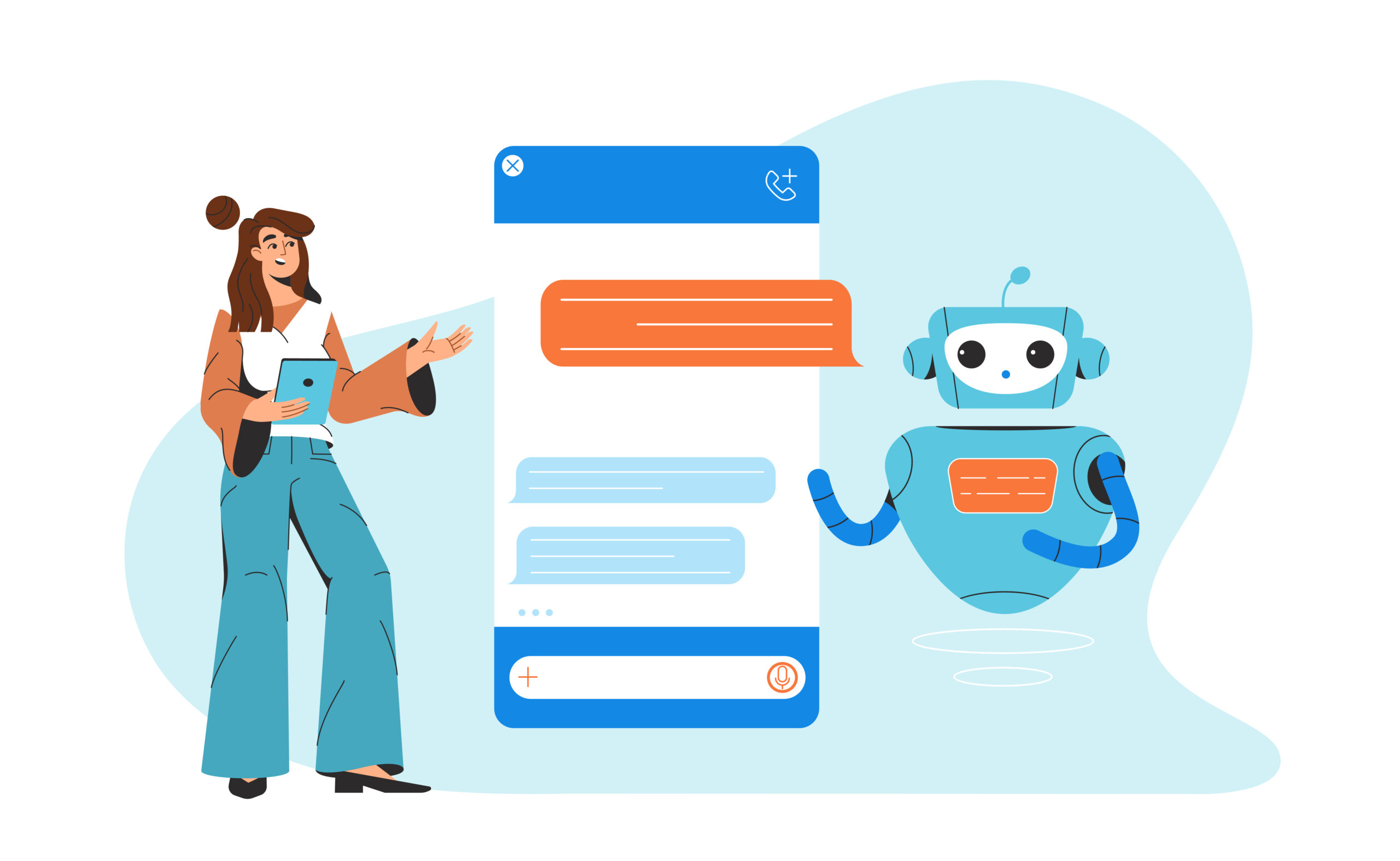Imagine a world where customer service never sleeps. Virtual agents make this possible. These AI-powered tools transform how businesses interact with customers. Virtual agents handle inquiries, provide support, and enhance experiences around the clock. The digital landscape demands efficiency and innovation. Virtual agents meet these needs by increasing customer satisfaction across industries. Did you know that 80% of businesses expected to use some form of AI virtual assistant by the end of 2022? This trend shows the importance of adopting AI-powered solutions in today’s fast-paced world.
Understanding Virtual Agents
Definition and Core Concepts
What are Virtual Agents?
Virtual agents are software applications designed to interact with users in a conversational manner. These agents use advanced technologies to simulate human conversation. Businesses often implement intelligent virtual agents to enhance customer service experiences. Virtual agent technology provides answers or directions based on customer inquiries. This makes virtual agents valuable assets in customer support settings.
Key Characteristics
Virtual agents possess several key characteristics that make them effective. First, they operate 24/7, providing constant support without breaks. Second, they handle multiple inquiries simultaneously, increasing efficiency. Third, they offer personalized assistance by understanding user intent. Intelligent virtual agents also gather and analyze data to improve interactions over time. These characteristics make virtual agents indispensable in today’s digital landscape.
How Virtual Agents Work
Natural Language Processing
Natural Language Processing (NLP) plays a crucial role in how virtual agents function. NLP allows virtual agents to understand and interpret human language. By implementing NLP algorithms, virtual agents communicate effectively with users. This technology enables agents to grasp the context and nuances of conversations. As a result, virtual agents provide accurate and relevant responses.
Machine Learning Integration
Machine learning integration enhances the capabilities of virtual agents. With machine learning, virtual agents learn from interactions and improve over time. This process involves analyzing patterns and adapting responses accordingly. Machine learning makes virtual agents more intelligent and efficient. Businesses benefit from this technology as it leads to better customer experiences. Implementing intelligent virtual agents with machine learning ensures continuous improvement.
Components of Virtual Agents
User Interface
Text-Based Interfaces
Virtual chat agents often use text-based interfaces. These interfaces allow users to type questions and receive instant responses. Many businesses use apps or websites to implement these interfaces. Text-based communication feels natural and easy for users. You can see virtual agent modules in action when you chat with customer support online. These modules handle inquiries quickly and efficiently.
Voice-Activated Systems
Voice-activated systems offer another way to interact with virtual chat agents. Users speak directly to the system, which responds with voice replies. This method provides a hands-free experience. Many smart devices and apps use voice-activated systems. These systems enhance user convenience and accessibility. Businesses integrate virtual agents into these systems to improve customer engagement.
Backend Systems
Data Processing
Backend systems play a crucial role in virtual agent modules. Data processing allows virtual chat agents to understand and respond accurately. These systems analyze user input and determine the best response. Efficient data processing ensures smooth and effective communication. Businesses rely on these systems to provide accurate information quickly.
Integration with Other Technologies
Virtual agent modules often connect with other technologies. Integration with systems like CRMs enhances functionality. This connection allows virtual chat agents to access customer data and provide personalized responses. Businesses benefit from seamless integration, improving overall service quality. The ability to integrate virtual agents with existing technology makes them versatile tools.
Applications of Virtual Agents

Customer Service
Enhancing User Experience
Virtual agents improve customer interactions by providing quick and accurate responses. Businesses use virtual agents to create a seamless experience for users. These agents understand user intent and offer personalized assistance. Virtual agents provide solutions that enhance the overall customer service experience. Intelligent virtual assistants combine AI technology with human-like interaction. This combination makes customer interactions more engaging and satisfying. Agents use virtual agents to handle repetitive tasks, allowing human agents to focus on complex issues.
24/7 Availability
Virtual agents offer round-the-clock support, ensuring customers receive assistance anytime. This availability increases customer satisfaction and loyalty. Businesses benefit from having virtual agents available at all times. Contact centers use virtual agents to manage high volumes of inquiries without delays. Dialpad integrates virtual agents into their systems for efficient customer service. IBM watsonx Assistant and Microsoft Power Virtual Agents are examples of solutions for virtual agents that provide continuous support. These tools ensure that customer needs are met promptly, regardless of the time.
Healthcare
Patient Interaction
Virtual agents play a crucial role in healthcare by facilitating patient interactions. Patients receive immediate responses to their queries through intelligent virtual assistants. Healthcare providers use virtual agents to streamline communication with patients. IVAs work by understanding patient needs and offering relevant information. Virtual agents improve customer experiences in healthcare by reducing wait times and enhancing service quality. The use of NLP allows virtual agents to comprehend medical terminology and provide accurate responses.
Data Management
Virtual agents assist in managing vast amounts of healthcare data efficiently. These agents process and organize patient information, making it easily accessible. Healthcare centers rely on virtual agents for data management tasks. Virtual agents provide insights into patient behavior and treatment outcomes. Dialpad and ITSM systems integrate virtual agents to optimize data handling. The integration of virtual agents in healthcare ensures that data is managed securely and effectively. IBM and other tech companies continue to innovate in this space, offering advanced virtual agent solutions.
Benefits of Virtual Agents

Efficiency and Cost Reduction
Virtual agents bring a lot of benefits to businesses. One of the biggest advantages is efficiency and cost reduction. Let’s dive into how this works.
Automation of Routine Tasks
Virtual agents handle routine tasks with ease. These tasks include answering frequently asked questions and processing simple requests. By automating these tasks, virtual agents free up human agents to focus on more complex issues. This automation improves desk operations and outcomes, making everything run smoother and more efficiently.
Reducing Human Error
Virtual agents also help reduce human error. Mistakes happen when humans get tired or overwhelmed. Virtual agents don’t face these challenges. They provide consistent and accurate responses every time. This reliability enhances customer satisfaction and trust in your services.
Scalability
Scalability is another major benefit of virtual agents. Businesses need to adapt quickly to changing demands. Virtual agents make this process easier.
Handling Increased Demand
Virtual agents handle increased demand without breaking a sweat. During peak times, such as holiday seasons, businesses face a surge in customer inquiries. Virtual agents manage these spikes effortlessly. They ensure that every customer receives timely assistance, improving overall engagement.
Flexibility in Deployment
The flexibility in deploying virtual agents is impressive. Businesses can integrate them into various platforms, from websites to mobile apps. This adaptability allows for seamless AI-powered customer engagement. Companies can scale their operations up or down based on needs, ensuring efficient use of resources.
Comparing Virtual Agents with Related Technologies
Virtual Agents vs. Chatbots
Differences in Functionality
Virtual agents and chatbots both enhance customer interactions, but they differ significantly. Virtual agents leverage advanced technologies like Conversational AI, NLP, and Machine Learning. These tools allow virtual agents to understand user intent and provide personalized responses. Chatbots typically follow scripted paths and handle straightforward queries. Virtual agents adapt and learn, offering a more dynamic experience.
Use Cases
Virtual agents serve in various roles across industries. Businesses use them for customer support, sales, and data analysis. IVAs integrate into platforms like websites and mobile apps, providing seamless service. Chatbots often handle basic tasks like FAQs or simple bookings. Virtual agents offer more complex solutions, enhancing customer satisfaction.
QuickCEP
QuickCEP, a leading provider of AI-powered solutions, offers both virtual agents and chatbots to meet diverse business needs. QuickCEP virtual agents are designed to handle complex inquiries, provide personalized recommendations, and automate various tasks. On the other hand, QuickCEP’s chatbots are ideal for handling routine tasks and providing quick answers to frequently asked questions. Combining these powerful tools, QuickCEP helps businesses improve customer experience, increase efficiency, and drive revenue growth.
Virtual Agents vs. Human Agents
Pros and Cons
Virtual agents and human agents each have strengths. Virtual agents operate 24/7 without fatigue, handling multiple inquiries at once. This efficiency reduces wait times and improves service quality. Human agents bring empathy and understanding to complex situations. Virtual agents lack emotional intelligence but excel in consistency and speed.
Complementary Roles
Combining virtual agents with human agents creates a powerful team. Virtual agents manage routine tasks, freeing human agents for more nuanced interactions. Businesses benefit from this synergy, optimizing resources and improving customer experiences. IVAs handle repetitive inquiries, allowing human agents to focus on building relationships and solving intricate problems.
Additional Virtual Agents Resources
Exploring more about virtual agents can enhance your understanding and application of these tools. You can find a wealth of resources to deepen your knowledge and skills.
Exploring Further
Online Courses
Online courses offer a fantastic way to learn about virtual agents. Many platforms provide courses that cover the basics and advanced concepts of IVAs. These courses often include interactive modules and real-world applications. You can learn at your own pace and gain valuable insights into how virtual agents work. Some courses even offer certifications, which can boost your professional credentials. Consider exploring platforms like Coursera or Udemy for comprehensive learning experiences.
Industry Reports
Industry reports provide in-depth analysis and trends about virtual agents. These reports often include case studies and expert opinions. You can gain insights into how businesses implement IVAs to optimize customer support. Reports also highlight emerging technologies and future trends in the industry. Reading industry reports can help you stay informed and competitive. Companies like SysAid frequently publish reports that are valuable for IT professionals. SysAid Reviews often discuss the impact of virtual agents on TCO and operational efficiency.
Virtual agents continue to evolve, offering new opportunities for businesses. Engaging with these resources can help you harness the full potential of IVAs. Whether through online courses or industry reports, you can expand your knowledge and improve your skills. Don’t miss the chance to explore these resources and transform your customer service strategies. For those interested in practical applications, consider booking a demo to see virtual agents in action.
Virtual agents have transformed customer service with their AI-powered capabilities. These tools, like Talkdesk Virtual Agent, offer personalized and efficient support. Businesses see increased satisfaction and reduced costs. The Future of IVAs looks promising as more companies adopt these solutions. Talkdesk Virtual Agent Voice enhances interactions with its conversational approach. You can UPLEVEL YOUR CONTACT CENTER by integrating IVAs. These agents handle inquiries around the clock, ensuring seamless customer experiences. Embrace the Future with IVAs to stay competitive and meet evolving customer needs.
See Also
The Shift to AI Concierges: Enhancing Business Services
Essentials of Chatbot Marketing: Benefits and Importance
Transforming Online Shopping: AI Chatbots Drive Sales
Shopify’s Tomorrow: E-commerce Evolution with AI Chatbots
Shopify’s AI Evolution: From Chatbots to Concierges









